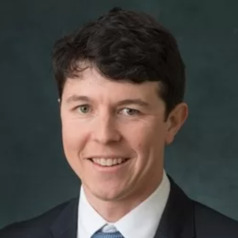
Jude Bayham
Associate Professor of Agricultural and Resource Economics, Colorado State University
Dr. Jude Bayham’s research focuses on the intersection of the natural environment, public policy and human health, including wildfire management in the wildland urban interface, the impact of human behavior on infectious disease management and impacts of air quality on human health. Dr. Bayham also teaches courses on the economics of outdoor recreation, data-driven decision making and economic research methodology.
Less ![]()
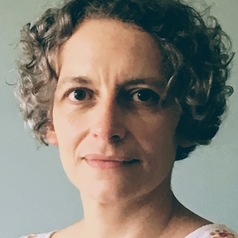
Jude Brereton
Professor of Audio and Music Technologies, University of York
Jude Brereton is Professor of Audio and Music Technologies in the School of Arts and Creative Technologies at the University of York.
For over 20 years she has been active in seeking to improve inclusion and diversity in audio engineering and creative technologies education. She was Co-Director of the Screen Industries Growth Network and is currently Co-Investigator of an AHRC funded project to develop and evaluate co-created EDI interventions in Virtual Production.
Her research interests include: musical performance and perception in virtual acoustic environments; skills development and inclusion in creative industries; interdisciplinary collaborative co-creation with musicians, engineers and scientists; inclusion and diversity in STEM and digital creative technology education.
Less ![]()
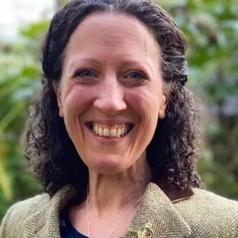
Jude Capper
Professor of Sustainable Beef and Sheep Production, Harper Adams University
Professor Capper has over 17 years of experience in assessing the environmental impacts and sustainability of livestock production systems through whole-system holistic models based on cattle performance and nutritional principles. She has a PhD in ruminant nutrition and behaviour and specific expertise in beef population dynamics, nutrition, greenhouse gas emissions, resource use, and whole-system environmental sustainability.
Prof. Capper's research focuses on modeling the sustainability of livestock production systems, specifically beef, sheep and dairy with current projects relating to the factors influencing greenhouse gas emissions, economic viability and whole system sustainability of UK beef and sheep operations; and interactions between dairy and beef cattle productivity on the sustainability of the combined UK cattle population.
Prof. Capper is a liveryman of the Worshipful Company of Butchers and Treasurer of the National Beef Association. She is also Chair of the Route Panel for Agriculture, Environment and Animal Care and Vice-Chair of the Green Apprenticeships Advisory Panel at the Institute for Apprenticeships and Technical Education.
Less ![]()
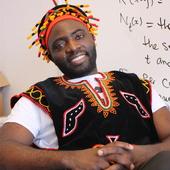

Jude MacArthur
Senior Lecturer, School of Critical Studies in Education, University of Auckland, Waipapa Taumata Rau
Less ![]()

Jude Parks
Senior Lecturer in Geography, York St John University
Jude Parks is a social geographer with interest in community participation. Her work explores understandings of social sustainability and its links with environmental sustainability and responses to climate crisis. She is currently involved in cross-disciplinary pedagogical research into student engagement with climate and ecological justice, including through a Living Lab project.
Less ![]()


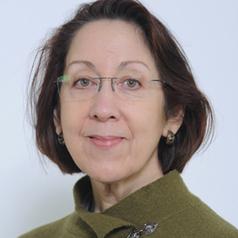
Judith Huacuja
Professor of Art History, University of Dayton
Judith L. Huacuja is a Chicana scholar who researches and teaches across the disciplines of ethnic studies, women's studies and visual culture. She brings expertise in Latin American and African American contemporary art history as well as a secondary emphasis in non-Western art history. Dr. Huacuja's recent research explores the cultural histories in African American as well as Latin American art of the Midwest. Her research and teaching methods analyze aesthetics and philosophies in relation to minority issues of resistance, activism and integration.
Dr. Huacuja's research grants include the College Art Association Cummings Fellowship, the Smithsonian Institution's Post-Doctoral Fellowship, the Chicana Studies Dissertation Fellowship (UCSB), a UC MEXUS Dissertation Research Grant, several Ohio Humanities Council grants and an Ohio Arts Council grant.
Dr. Huacuja has undertaken numerous curatorial projects including "Three Generations of Chicana Art," "Latino Art of the Midwest," and "Sera," featuring artists whose work references Hispanic, Latino and Chicano social issues. Recent curatorial projects on African American artists include "Masks, Music, and Musings: A Retrospective Exhibition and Symposium on the Art of Curtis Barnes Sr." and "Marking the Past/Shaping the Present: The Art of Willis Bing Davis."
Less ![]()

Judith Liu
Assistant Professor of Economics, University of Oklahoma
Judith Liu is an Assistant Professor of Economics at the University of Oklahoma.
Fields: Health Economics, Public Economics, Labor Economics
Less ![]()
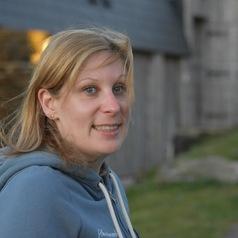
Judith Lock
Principal Teaching Fellow in Ecology and Evolution, University of Southampton
In my PhD I looked at parent-offspring conflict, using burying beetles are my model species. These beetles provide care to their offspring for about a week after they hatch, and care is best when it is provided by both parents - who divide tasks between them - more direct behaviours by mothers and indirect by fathers.
Since completing my PhD I have become a teaching-focussed academic, teaching animal behaviour and related topics in evolutionary ecology and conservation. I am programme lead for MRes Wildlife Conservation at the University of Southampton, a programme run in collaboration with Marwell Wildlife.
Less ![]()

Judith McCool
Head of School, Population Health, University of Auckland, Waipapa Taumata Rau
Less ![]()

Judith Olejnik
Senior Research Scientist, Boston University
My research interest is in highly pathogenic RNA viruses with a focus on virus host interactions and how viruses counteract the immune reponse. I am experienced in working with Filoviruses, Henipaviruses and Lassa virus, which are highly pathogenic for humans under high containment conditions. In additon I am also interrested in the interplay of SARS-CoV-2 with the immune system.
Less ![]()
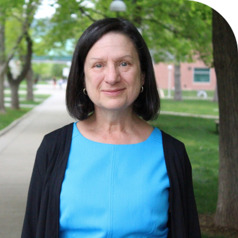
Judith Regensteiner
Professor of Medicine, University of Colorado Anschutz Medical Campus
Dr. Judy Regensteiner is the director of the Ludeman Family Center for Women's Health Research and distinguished professor of medicine in the divisions of internal medicine and cardiology at the University of Colorado Anschutz Medical Campus. She holds the Judith & Joseph Wagner Chair in Women's Health Research. Dr. Regensteiner's research expertise is in the cardiovascular effects of diabetes with a specific focus on women with type 2 diabetes since they appear to have more significant abnormalities than men with diabetes. Her lab has been funded for over 30 years and she has authored more than 180 research publications. She is also known for her research on peripheral arterial disease.
Dr. Regensteiner is currently principal investigator for the National Institutes of Health's Building Interdisciplinary Research Careers in Women's Health (BIRCWH) grant and a grant funded by the NIH on sex differences in the cardiovascular consequences of type 2 diabetes. She just completed her second full term on the NIH's Advisory Committee on Research on Women's Health. As co-founder and director of the Ludeman Center at the University of Colorado Anschutz Medical Campus, Dr. Regensteiner leads an interdisciplinary team of MD and PhD researchers who focus on women's health and sex differences research
Less ![]()

Judith Sinanga-Ohlmann
Professor of French language, French and Francophone Literature, University of Windsor
Dr Judith Sinanga-Ohlmann is a graduate of the University of Nice-Sophia Antipolis and Queen’s University. After her MA degree in semiotics and literary sciences at the University of Nice-Sophia Antipolis, she continued her studies at Queen’s University, where she obtained her PhD degree in Francophone literatures.
She is a professor at the University of Windsor, where she teaches Francophone literatures, feminist literature and cultures from sub-Saharan Africa.
Her research interests include diaspora, exile, social justice and feminist literature.
Less ![]()

Judith Dax̱ootsú Ramos
Assistant Professor of Northwest Coast Arts, University of Alaska Southeast
Judith’s Dax̱ootsú Ramos is Tlingit from Yakutat, Alaska. She worked for Yakutat Tlingit Tribe as an anthropologist. She is a co-curator for the Northwest Coast Hall renovation at the American Museum of Natural History in New York. Her publications include: Ramos, J. (2020). Tlingit Hunting along the Edge: Ice Floe Harbor Seal Hunting in Yakutat Bay, Alaska., A. Crowell (ED.), Arctic crashes: People and animals in the changing north. Washington, D.C.: Smithsonian Scholarly Press; “This is Kuxaankutaan’s (Dr. Frederica de Laguna’s) Song” with Elaine Abraham: and “Traditional Ecological Knowledge of Tlingit People Concerning the Sockeye Salmon Fishery of the Dry Bay Area” with Rachel Mason.
Daughter of Elaine Abraham and George Ramos, mother of Kai Abraham Monture and Maka Jinatlaa Monture.
Less ![]()
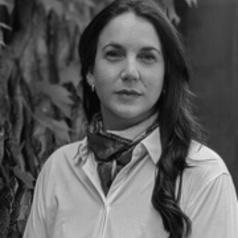
Judith Ellen Brunton
Postdoctoral Fellow in the Canada Program, Harvard University
I am an anthropologist of religion in North America. So, I am interested in religion, spirituality, and meaning making in people’s everyday lives. In my dissertation project, I used ethnographic and archival methods to explore how oil culture in Alberta shapes how people imagine what a good life is and how to live it. This current project focuses on the power of place, and how land plays a part in people’s lifeworlds, so I also work within the environmental humanities.
Less ![]()
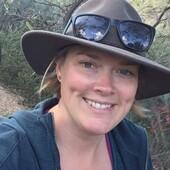

Judy Fudge
LIUNA Enrico Henry Mancinelli Chair of Global Labour Issues, School of Labour Studies, McMaster University
Judy Fudge is the LIUNA Enrico Henry Mancinelli Chair of Global Labour Issues in the School of Labour Studies at McMaster University, which she joined in July 2018. Judy began her academic career in Canada, where she was Professor at Osgoode Hall Law School, York University (1987-2006) and Lansdowne Chair in Law at the University of Victoria (2007-2013), before moving to England to teach at the University of Kent (2013-2018). She has held visiting professorships and fellowships at several universities and institutes in Canada and Europe. In 2013, she was elected as a Fellow of the Royal Society of Canada; in 2014 she received an honorary doctorate from the Faculty of Law at the University of Lund in Sweden; and in 2019 she received the Bora Laskin Award for her distinguished contributions to Canadian Labour Law.
Judy takes a socio-legal approach to studying work and labour and is committed to fostering a multi-disciplinary approach to understanding the challenges and opportunities facing workers. She has worked with women’s groups, legal clinics, trade unions and the International Labour Organization. Her most recent work focuses on labour exploitation, modern slavery and unfree labour in the context of labour migration and global supply chains.
Less ![]()

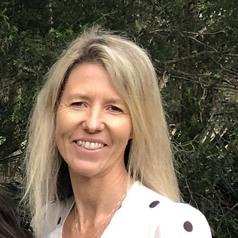
Judy Pickard
Senior Lecturer, Clinical Psychology, University of Wollongong
I am a Clinical Psychologist teaching in the Clinical Psychology Program. My research interests are in mindfulness, self compassion and attachment relationships. I have significant experience working clinically with mental health disorders.
Less ![]()
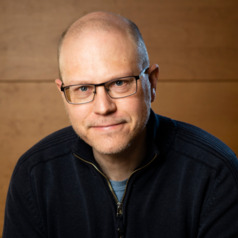
Jukka Pirttilä
Professor of Public Economics, University of Helsinki
Jukka Pirttilä is a professor of public economics at the University of Helsinki and also works as a Non-Resident Senior Research Fellow at UNU-WIDER. He conducts research on topics related to taxation and social protection in developing countries.
Pirttilä has a doctorate in economics from the University of Helsinki and is a Fellow of the CESifo network. His research has been published in journals such as Journal of Public Economics, Journal of Development Economics, Economic Journal and the European Economic Review.
Less ![]()

Jul Parke
PhD Student in Media, Technology & Culture, University of Toronto
Jul Parke is a PhD student specializing in social media platforms, digital racism, virtual influencers, and AI phenomena at the University of Toronto's Faculty of Information.
Less ![]()

Juleen R. Zierath
Chair professor of Clinical Integrative Physiology, Karolinska Institutet
Juleen R. Zierath is presently Professor of Clinical Integrative Physiology and Head of the Section of Integrative Physiology at the Department of Molecular Medicine and Surgery and the Department of Physiology and Pharmacology at Karolinska lnstitutet. She is also appointed Professor of Physiology at the University of Copenhagen, where she is Executive Director at the Novo Nordisk Foundation Center for Basic Metabolic Research.
Zierath’s research has provided evidence for the physiological regulation of insulin signaling pathways in skeletal muscle, revealing key steps that are impaired in diabetic patients. As an exercise physiologist, she has a long-standing interest in the health–promoting benefits of physical exercise. The ultimate goal of her work is to identify and validate molecular candidates to prevent or treat insulin resistance in type 2 diabetes. Improving insulin sensitivity should alleviate diabetic complications and enrich the quality of life for the diabetic patient.
Zierath is past president of the European Association for the Study of Diabetes and the European Foundation for the Study of Diabetes. She is a member of the Royal Swedish Academy of Sciences and the Nobel Assembly. She was chair of the Nobel Committee at Karolinska lnstitutet between 2013 and 2015 and is currently an adjunct member of this committee.
Less ![]()

Jules Dupuy
Doctorant en Economie de la santé, Université Paris-Est Créteil Val de Marne (UPEC)
Jules Dupuy is currently a PhD candidate in health economics at ERUDITE (Research Team on the Use of Individual Data in connection with Economic Theory), attached to the University Paris-Est Créteil. He graduated from Ecole Normale Supérieure Paris-Saclay and holds a Master 2 in health economics from the University Paris-Est Créteil.
His PhD dissertation, entitled "Vulnerability, individual preferences and health behaviors", aims to study the empirical relationship between vulnerability status, protective and risk behaviors, and individual health decisions, from an international perspective.
Less ![]()
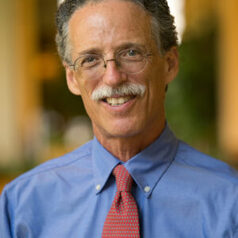
Jules Epstein
Professor of Law and Director of Advocacy Programs, Temple University
Jules Epstein is the Edward D. Ohlbaum Professor of Law and Director of Advocacy Programs at Temple University Beasley School of Law. He is a former partner at the highly respected Philadelphia criminal defense and civil rights firm of Kairys, Rudovsky, Messing, Feinberg, & Lin LLP, where he remains of counsel. Professor Epstein teaches criminal law and evidence courses.
A 1978 graduate of the University of Pennsylvania School of Law, Professor Epstein began his legal career with the Defender Association of Philadelphia. He was an adjunct professor at the University of Pennsylvania from 1988 through 2006, has taught in and prepared materials for countless continuing legal education programs, and has authored dozens of articles and book chapters on criminal law and evidence topics. He served as a Professor of Law and the Director of the Taishoff Advocacy, Technology, and Public Service Institute at Widener School of Law before joining the faculty at Temple.
Professor Epstein’s work has concentrated, in recent years, on capital case, eyewitness, and forensics issues. He has taught death penalty law nationally to judges and attorneys, and continues to handle capital cases at the appellate and post conviction stages. In the area of eyewitness evidence, he has lectured, authored both articles and book chapters, and served as an expert witness.
Nationally, Professor Epstein served as a member of the National Commission on Forensic Science from 2013 until the Commission’s demise in 2017. He is faculty for the National Judicial College, teaching courses to judges in advanced evidence and capital case law. In Pennsylvania, he is a member of a group of lawyers, judges and academics revising the Suggested Standard Jury Instruction, Criminal, and served on a commission addressing issues in cases of wrongful convictions.
Education
Juris Doctor, University of Pennsylvania School of Law, 1978
Bachelor of Arts, Liberal Arts (Magna cum laude, Phi Beta Kappa), University of Pennsylvania, 1975
Research & Teaching Areas
Criminal Law
Criminal Procedure
Evidence
Trial Advocacy
Areas of Expertise
Criminal Law and Procedure
Evidence
Trial Advocacy
Pennsylvania Criminal Law & Procedure
Death Penalty
Forensic Science
Less ![]()

Jules Gazeaud
Chargé de recherche CNRS, Université Clermont Auvergne (UCA)
Jules Gazeaud est chargé de recherche CNRS à l'Université Clermont Auvergne au sein du CERDI. Il est également chercheur associé à l’IC Migrations. Économiste du développement, ses travaux portent essentiellement sur l’étude des politiques de protection sociale, la migration, et la microfinance. Avant de rejoindre le CNRS, il a travaillé au J-PAL (laboratoire d'action contre la pauvreté du MIT) en tant que chercheur postdoctoral à l’Université américaine du Caire. Durant sa thèse, il a passé plusieurs années dans l’archipel des Comores pour étudier l'impact d’un filet de sécurité social mis en place par le gouvernement Comorien et la Banque Mondiale pour lutter contre la pauvreté.
Less ![]()
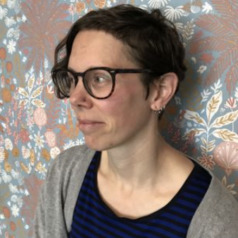
Jules Holroyd
Senior Lecturer in Philosophy, University of Sheffield
Jules is a senior lecturer at the University of Sheffield. Their research is in social and moral philosophy.
Much of Jules' previous research has focused on implicit gender and racial biases – automatic patterns of thought that can lead us to stereotype and discriminate. Jules has written on the ways in which we, and institutions in which we participate, perpetuate injustices, and what to do about it – their research has examined notions such a discrimination, collective vices, and integrity in criminal justice. This research spans the topics of political philosophy, moral psychology and social philosophy (in particular, feminist philosophy and philosophy of race). Their current work focuses on how praise, in response to achievements - which philosophers have typically assumed to be a benefit - might instead sometimes perpetuate oppression and injustice.
Jules has led interdisciplinary research projects (with psychologists) that have investigated how to address implicit biases (with a Leverhulme Trust Project Grant, 2014-2017), and worked with legal scholars in exploring the implications of this research for legal concepts and practice. More recently Jules received a fellowship from the Mind Association to complete a book on praise.
Jules has had the opportunity to use this research in a range of contexts, such as with members of the judiciary and the civil service in the UK; in making policy recommendations within higher education institutions regarding parental leave policies and practice; developing gender inclusion policies to guide interactions between staff and students in higher education; and reviewing policies regarding recognition and promotion.
Less ![]()
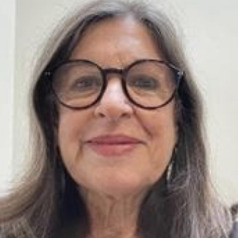
Julia Anaf
Postdoctoral research fellow, Stretton Health Equity, Stretton Institute, University of Adelaide
My main research interests are the social, political and economic determinants of health and health equity. A particular interest is the growing recognition of the commercial determinants of health, or the systems, practices and pathways through which commercial actors drive health and equity.
I have contributed to setting a research agenda on the health impacts of transnational corporations and have conducted health impact assessments of individual corporations spanning fast food, extractives, and alcohol industries in Australia and Southern Africa. I helped to convene a Citizen's Jury to provide recommendations to government for improved regulation of the fast-food sector.
I am currently employed (part-time) on the NHMRC Investigator Grant 'Restoring the Fair Go: which policies and practices are likely to reverse growing health inequities post Covid-19?' I lead the the privatisation theme which investigates the health impacts from privatisation and outsourcing of public sector roles to the private sector, including to large global consultancy and accounting firms.
My educational qualifications are BA Hons, BSW, MPub Pol, PhD.
Less ![]()
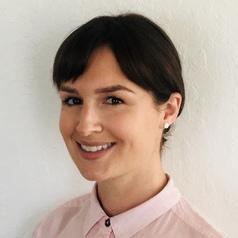
Julia Brown
Assistant Professor of Humanities & Social Sciences, University of California, San Francisco
I am an anthropologist and bioethicist who investigates the lived experiences of controversial medical treatments.
Less ![]()


Julia Dobrowolski
Research Assistant, Telfer School of Management, L’Université d’Ottawa/University of Ottawa
Julia is a recent graduate from the MSc Health Systems program at the Telfer School of Management currently working as a qualitative research assistant.
Less ![]()
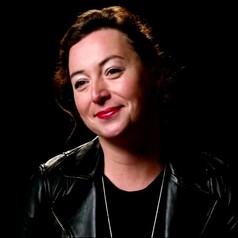
Julia Fehrer
Associate Professor, Business School, University of Auckland, Waipapa Taumata Rau
Julia A. Fehrer is an Associate Professor of Innovation & Strategy at the University of Auckland Business School in New Zealand. Her research forms at the intersection of strategic marketing, service research, and innovation, focusing on market and ecosystem innovation as catalyst for digital and societal transformation. Her work, published in leading journals such as the Journal of Service Research, Industrial Marketing Management, and the Journal of Business Research, has been recognized with several international awards, including the Australian & New Zealand Marketing Academy Emerging Researcher of the Year Award.
Dr Fehrer contributes to the Journal of Service Management, Journal of Service Theory and Practice, and AMS Review as a member of their editorial boards, while also co-chairing a Special Interest Group focused on Market Shaping and Innovation. She is Academic Lead for the Disciplinary Area of Innovation & Strategy and serves as Co-chair of the Circular Economy in Business Beacon at the University of Auckland. In this role, she collaborates with international scholars, industry networks and policymakers to drive sustainable innovation. With a substantial grant from the Ministry of Business, Innovation, and Employment, she works in a transdisciplinary team to facilitate the shift of New Zealand's plastic industry towards a circular economy.
As an educator, Dr Fehrer is known for her innovative teaching methods in strategic and digital marketing, service design, and innovation, blending traditional and digital formats to enhance students’ learning experience. Her contributions to teaching have been recognized with the University of Auckland Business School's Early Career Excellence in Teaching Award. Currently, she is open to supervising research students with projects revolving around circular innovation, market shaping within the circular economy, the role of digital platforms in circular economy transformations, and the exploration of digital innovation within Indigenous value systems.
Less ![]()
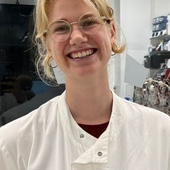

- Market Data





















